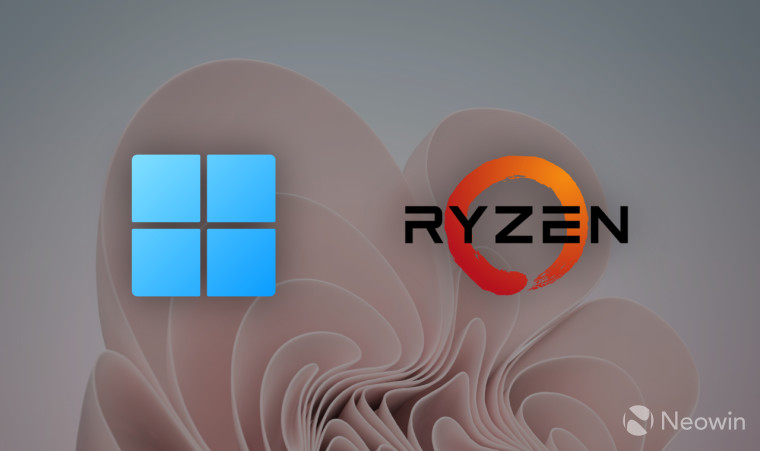
AMD has come out today guns blazing taking down all reports of performance regression on its Ryzen 7000 when using Windows 11. Such reports came from independent seasoned testers who said they were seeing less than optimal performance on the new Zen 4 CPUs, typically on the new Windows 11 22H2 feature update. AMD says it tested against those claims and found nothing substantial as the performance across Windows 11 and Windows 10 was pretty much within the typical margins of error.
The company writes:
We have been made aware of reports of unexpected performance deltas in certain games with AMD Ryzen™ desktop processors as well as performance variances between Windows® 11 and Windows® 10 in certain game titles. We are currently investigating but based on testing to date have not observed a material difference in game performance between OS versions across a variety of operating scenarios and game titles.
Additionally it believes that the differences noted may have to do with the games" optimizations themselves rather than something that AMD has messed up on its part. It says:
Many factors affect gaming performance, including the game engine, CPU architecture, GPU selection and memory choices. As new architectures enter the market, we often observe performance anomalies which must be addressed by the component vendor or the game publisher. This is not a new phenomenon nor is it unexpected.
Hence, what AMD is essentially saying is that future optimizations for Ryzen 7000 and the Zen 4 architecture will likely iron out these performance issues. For those that missed it, the reports indicated that disabling SMT was found to be more helpful, especially in cases when fewer CCD (CPU Compute Die) are deployed.
Via: Tom"s Hardware